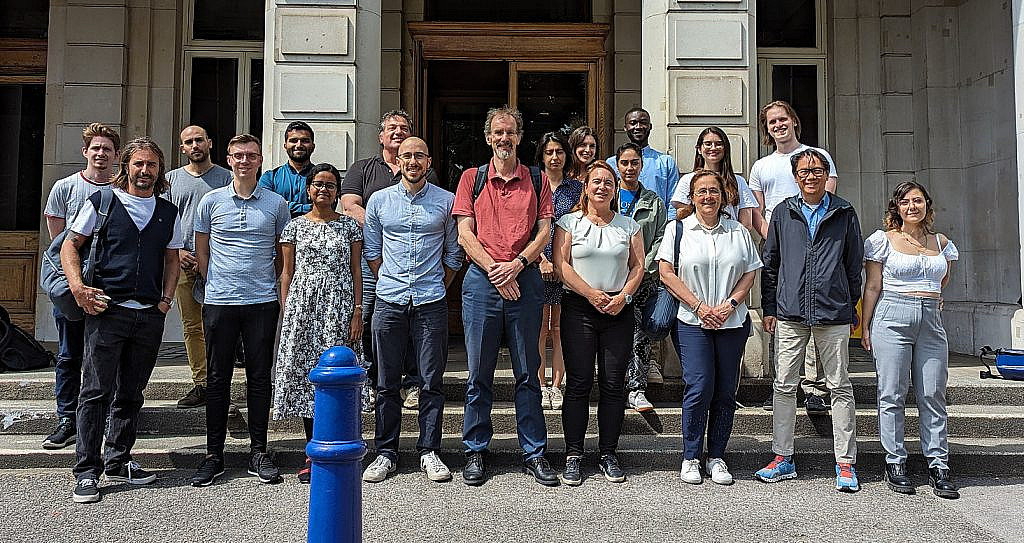The 2nd Bio2Brain Summer School took place at Queen Mary University of London from 28th to 30th June 2023. The School covered both scientific training, with a combination of theory seminars and practical experiments in the lab, and transferable skills training. During the last day a session was organised which included presentations and opportunities for networking with MSCA Alumni from previous networks.

The focus of the scientific training was the acquisition of knowledge on the synthesis and characterisation of polymeric nanomaterials, more specifically, covalently cross-linked nanogels. The practical lab focused on the study of the thermoresponsive properties of these materials, and on their ability to form emulsions, that could be seen as more or less stable depending on the experimental conditions used.
The underlying theme of the transferable skills training was ‘working as part of a team’. The researchers were divided into teams and, well in advance of the summer school, asked to work together to develop an outreach video, that will be published on our website. During the School the researchers undertook another Team challenge, the so called Marshmallow Challenge. This was followed by them undertaking the Belbin test to evaluate their ‘personality type’ as team players. An interesting discussion was followed as the researchers reflected on their results, and on their experiences working as part of a newly formed team.
There were also seminars focusing on writing publications, as this is a time during their project, where the first publishable data should be obtained. There was a session on how to structure a paper, how to organise the material, and how to prepare manuscripts, delivered by Prof. Resmini (QMUL). This was followed by a very interesting session delivered by one of the Senior Editor of the Royals Society of Chemistry. Both sessions led to multiple questions and an interesting discussion about the role of the cover letter, but also the potential existence of bias in publishing.
The School finished on the last day with two sessions on key industrial aspects of developing nanoformulations for commercial purposes, presented by Dr. Günday-Türeli (MyBiotech). This was followed by an afternoon with MSCA alumni, who were able to share their past experiences, their career choices, their motivations, and also provide advice to the researchers in the audience. There was plenty of networking opportunity, as all the alumni were able to stay the whole afternoon and also join the ESRs for the dinner.
We would like to thank Prof. Resmini and her team from QMUL for the great organisation and hospitality.